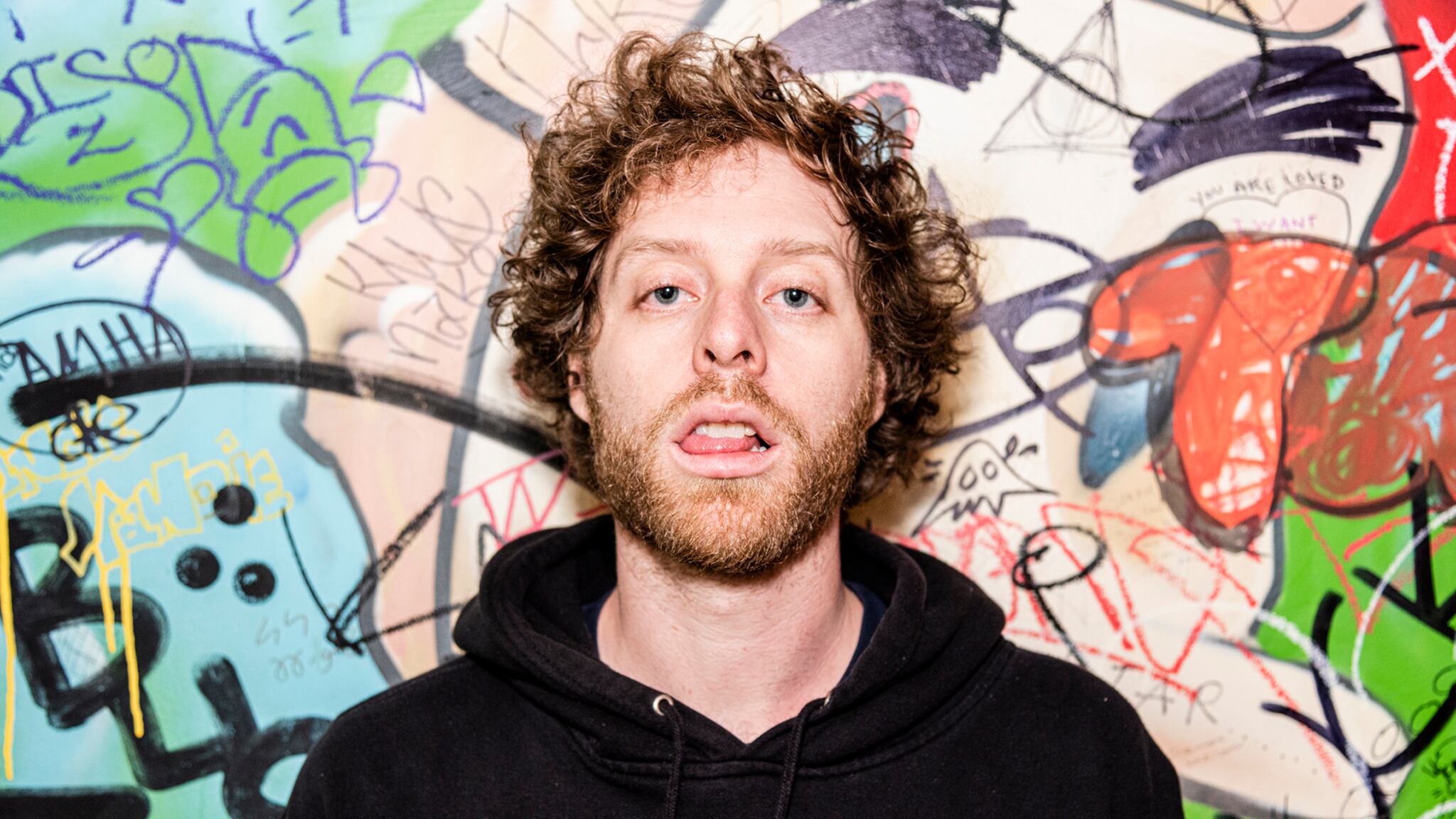Jake Silberman’s #VanLife has been anything but glamorous.
The comic—who was voted WW’s Funniest Person in 2018—bought the bare-bones, banged-up vehicle last year from a disbanding catering company in order to hone his skills on the road as economically as possible. So, yes, there’s now a bed in the rear, but the setup is more Frances McDormand in Nomadland than a bohemian-inflected Instagram account documenting the journeys of a Mercedes-Benz Sprinter. As the 35-year-old puts it, the van is “a tool to do comedy,” and it’s been a pretty effective one at that.
“The money you make in comedy is not great,” Silberman explains. “Some of these gigs you’re doing, like maybe you get a few hundred bucks, but you don’t get a hotel.”
Turning his ride into a bedroom means he’s been able to save some cash by not paying for lodging while traveling across the U.S.. Hitting the road also allowed him to transition to full-time professional comedian—no day job—a status most standups simply dream of.
“I’m not on TV, but this is how I make my living—as a comic,” Silberman says. “It takes a lot more discipline on the business side, which I really had to learn on the fly.”
And after living and performing in Portland for nine years, the Minneapolis transplant will leave town for good in his trusty van by the end of June. He’s setting out on another cross-country tour that will end in his next hometown: New York City.
The move has actually been in the works for years. In March 2020, Silberman’s bags were all but packed. He gave notice to his employer. Then, two weeks later, the nation shut down, wiping out every show on Silberman’s schedule. Rather than follow through and relocate to New York anyway, which quickly became the epicenter of that initial COVID surge, he hunkered down for an extended stay in Oregon.
Now that waves of severe illness seem to be subsiding and we’ve learned to live in a world that’s adapting to this disease, Silberman is bidding farewell to the city where he cultivated his standup and became known for his razor-sharp crowd work that made no two performances alike.
WW caught up with Silberman just before his going-away showcase June 19 to ask the elder statesman about the evolving local comedy scene, why he thinks touring is critical to his growth, and one career goal he had but didn’t achieve.
WW: Did you ever reconsider your original plan to move to New York during the last two years?
Jake Silberman: I kind of put it out of my mind. For the first year, I didn’t even know when comedy was going to come back in any real indoor way. But once we kind of crested that hump of, OK, the vaccines are out, that’s when I started to play it again in my brain. I was debating the timeline—when New York reopened at first, I was like, maybe I should go sooner, and then another wave hit and I was glad I didn’t. But I think moving to New York now, unless some crazy new strain or catastrophe happens, I’ll be able to hit the ground and start doing comedy immediately.
Why did you decide to start touring, particularly outside of Oregon, last year?
I’m not huge on social media, so the way to get my name out there is just to physically go to all of these different scenes, do well, meet people. It’s kind of the old-school way, just shaking hands and like, I’m this guy. You can’t expect to sit in one city and blow up anymore. You have to get big on the internet or you have to do it the old-school way: “Oh, I’ve seen this guy in Chicago and I’ve seen him in Denver. Like, he’s a name. He’s out there.”
Travel became an integral part of your growth, then?
For the most part, any comic eventually has to cut their teeth on the road. To be good in the way I want to be good, you have to perform in front of a lot of different people. Because Portland people, generally speaking, have certain things that they’ll find funny. But then you go down to Molalla or Dallas—smaller, conservative towns—and they have a completely different frame of reference. They’re not going to get some of your jokes that might really do well in Portland. They might even find those offensive and vice versa. It’s also good for you as a person to get out and meet a bunch of different types of people.
Did the last two years change your approach to comedy at all?
There was the meta stuff we all dealt with in one way or another, you know, in some way having to face our own mortality probably earlier than a lot of us thought. So I think once we got comedy back, it was really appreciating it, not taking it for granted. Even bad shows, I was like, it’s still a show. It’s better to have a bad set than not get to do comedy at all. And then traveling so much helped me realize how much bigger comedy is than just Portland. I think that when you’re in whatever scene you started in, that’s kind of your little world. It really opened my eyes: There are funny people everywhere. You have to stand out amongst those funny people.
How was your experience with the downtime when you couldn’t perform?
A lot of the comics I talked to in some way did appreciate the break. I can’t tell you how better my mental health got in the pandemic because [pre-COVID] I was working 40 hours a week, biking to and from work, biking out doing two or three spots a night, coming home, repeat. I didn’t even realize how exhausted I was. I turned that into my lifestyle, so I got used to it.
Now that you’ve been in the comedy scene here for nearly a decade, how has it changed?
When I started, there was a lot more talent up top. Ian Karmel was still here, Shane Torres was still here. And the hierarchy was a little more formed. You were like, these are the people above me, and anytime one of those people moved, you moved up a rank. And more and more of that talent has peeled off to L.A. or New York, so the scene now is so much newer.
How do you think you’ve grown as a comic?
I’ll try to think more about what I’m doing onstage and also be as loose as possible, so it’s kind of this weird tension. When I first started, I would come off as a very angry person. I don’t think that was good, because I don’t think people could relate to me. I was in my 20s, like, “What the fuck are you angry about? You haven’t even seen the world yet.” And now I definitely try to present, hey, I’m having fun up there! And also being more conscious of the things I need to get better at, which I don’t think I was always super aware of.
Are there any goals you made that you didn’t accomplish in Portland?
Yes. One hundred percent. One thing that I never got to do that I’ll definitely leave with a bit of a chip on my shoulder is, open for someone at one of the theater shows. I got to open for some of my heroes at Helium. But when someone did the Aladdin or Revolution Hall, I always wanted to be the opening comic outside of a comedy club, and for whatever reason, it never happened. But you can’t get everything, and honestly, I don’t think it’s bad, because I kind of like always having something to prove. I’ll leave this city and be like, I’ve gotta get better. I have to be undeniably funny to get to that next level. That’s a good goal to have.
SEE IT: A Silby Send-Off takes place outside Desert Island Studios, 645 N Tillamook St., eventbrite.com. 7 pm Sunday, June 19. $10.

